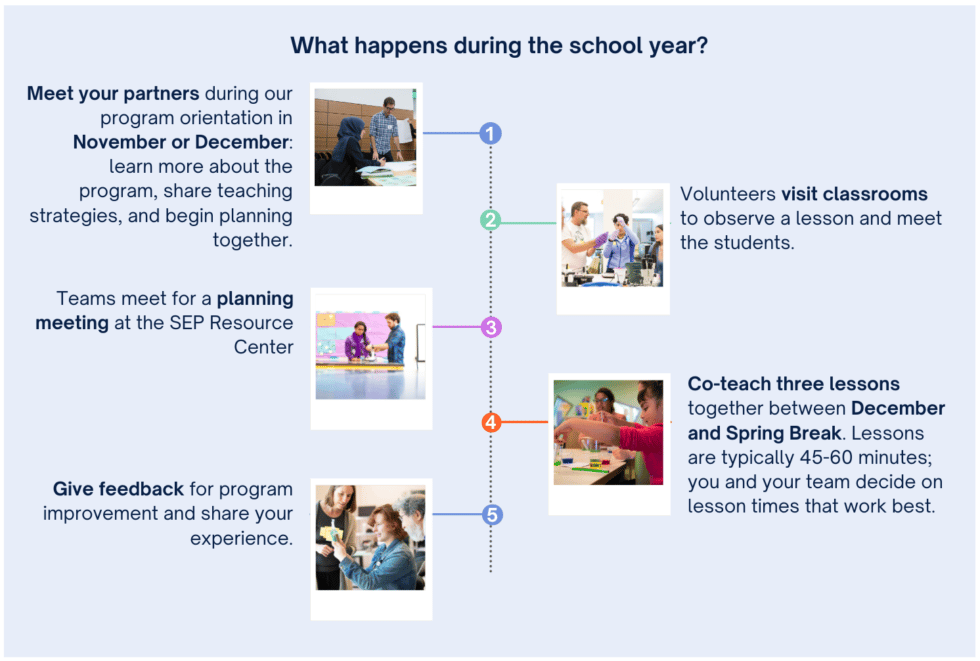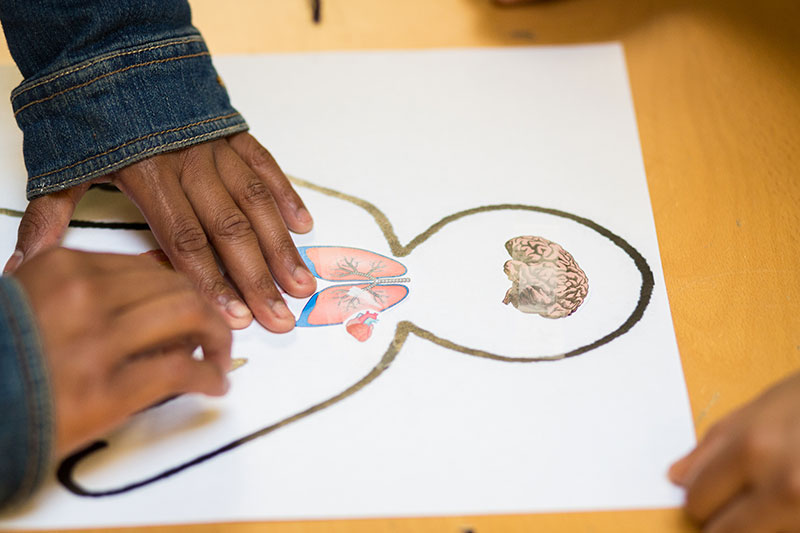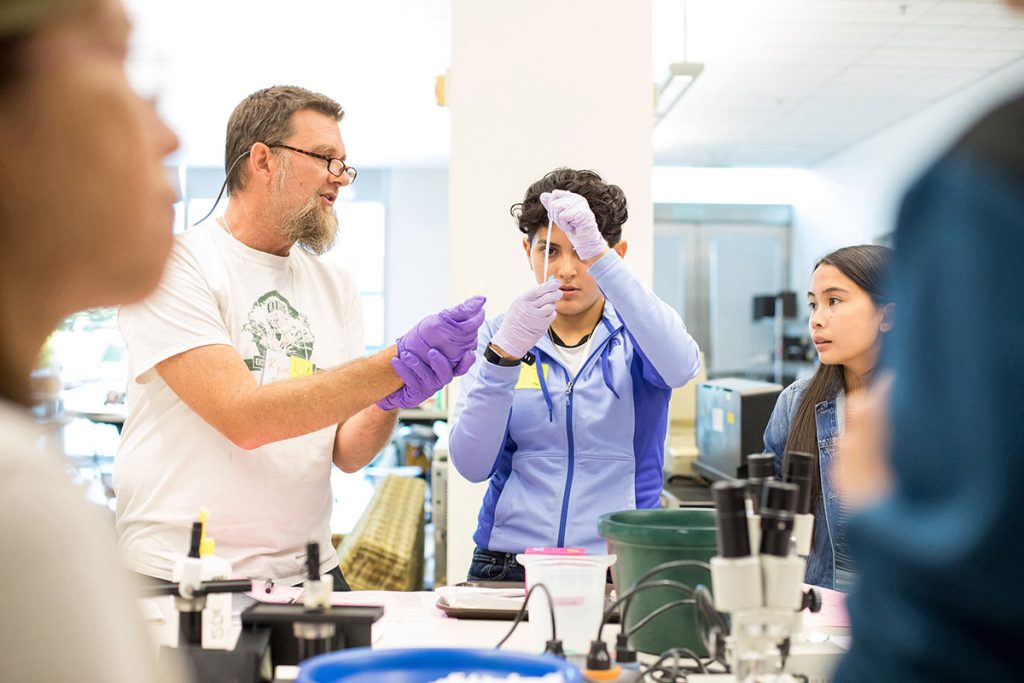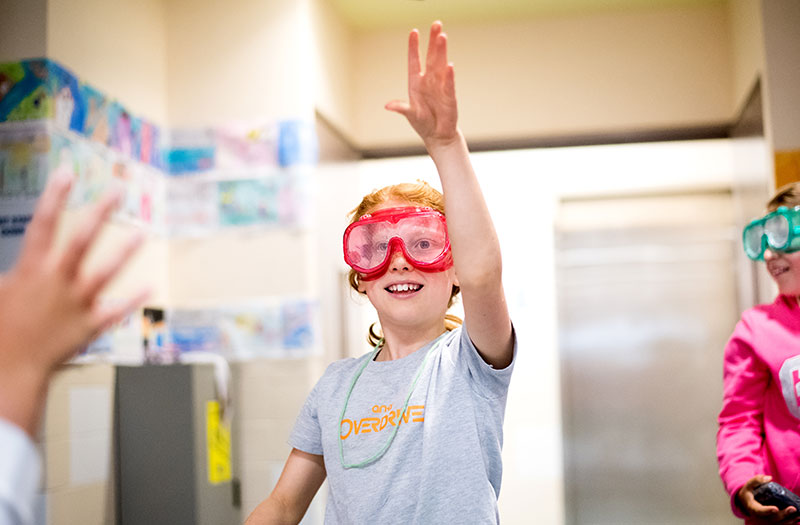SEP connects K-12 teachers and their students with UCSF volunteers through classroom partnerships and STEM Storytimes. SEP also offers professional development workshops for teachers.

SEP matches SFUSD teachers with UCSF volunteers to plan and co-teach a series of lessons in kindergarten through 5th grade classrooms. Professional students from Medicine, Dentistry, Pharmacy, Nursing and Physical Therapy Schools tend to support lessons on human body or health. Graduate students, postdoctoral fellows, research scientists, and faculty generally support hands-on biological, physical, and/or earth science lessons.
During this one-time 45-60 minute classroom visit, UCSF volunteers read a selected STEM picture book to a classroom of students, lead a short demo or activity related to the book, and host a brief Q&A with the students. Selections of grade-level appropriate STEM picture books are made by SEP. This offering requires a brief planning meeting between the teacher and volunteer before the visit.

SEP matches SFUSD teachers with UCSF volunteers (graduate students, postdoctoral fellows, research scientists, and faculty) to plan and co-teach a series of investigative science lessons around biological, physical, and/or earth science topics. Generally, one teacher partners with two to three UCSF volunteers to teach a minimum of three lessons.
The paid two-week long Cellular Construction Workshop brings high school students and teachers together to learn about cellular engineering while using robots to solve challenges similar to those faced by cells. Cellular engineering applies knowledge of how cells (and systems of cells) are built, make decisions, and accomplish tasks in order to develop new cell-based technologies. Teachers experience problem-based learning modules that integrate NGSS engineering practices and life sciences curriculum and are given lesson materials to bring cellular engineering into their own classroom.

All of SEP’s programs are offered free-of-charge. To do this work, SEP must annually raise nearly $2 million. Every donation brings us closer to that goal and helps to make this important work possible.

As part of UCSF, SEP is a 501(c)3 non-profit. All donations are tax deductible to the fullest extent of the law. Please let us know if your company participates in a matching gift program so that we can extend the benefit of your generosity.